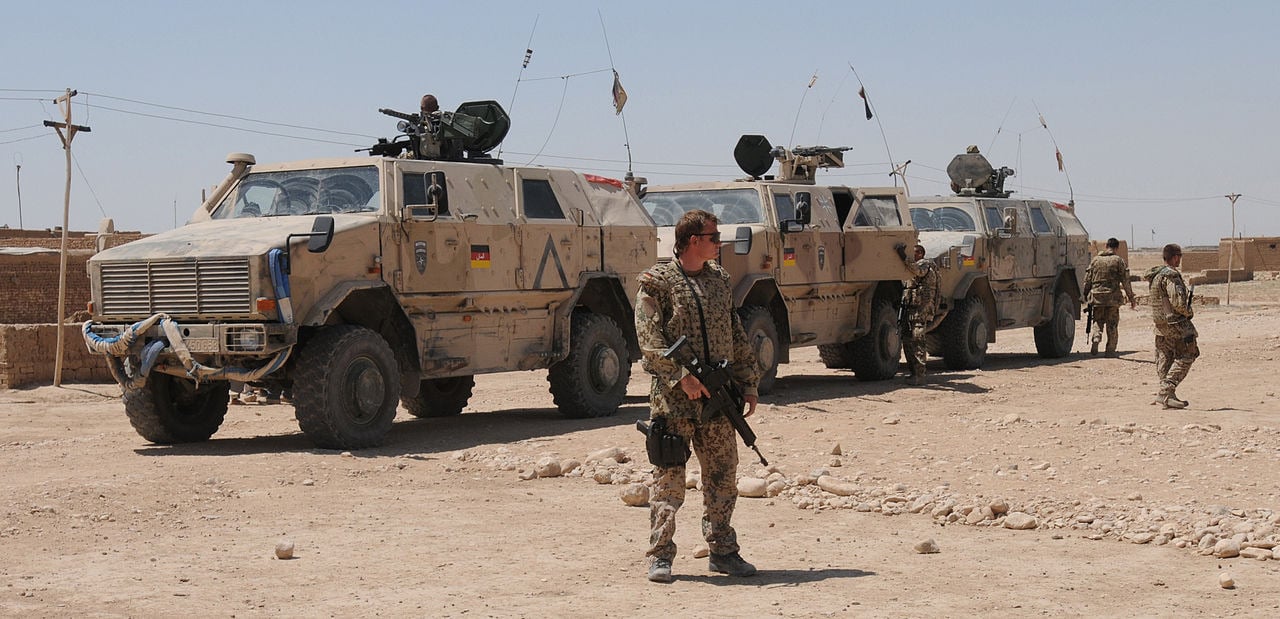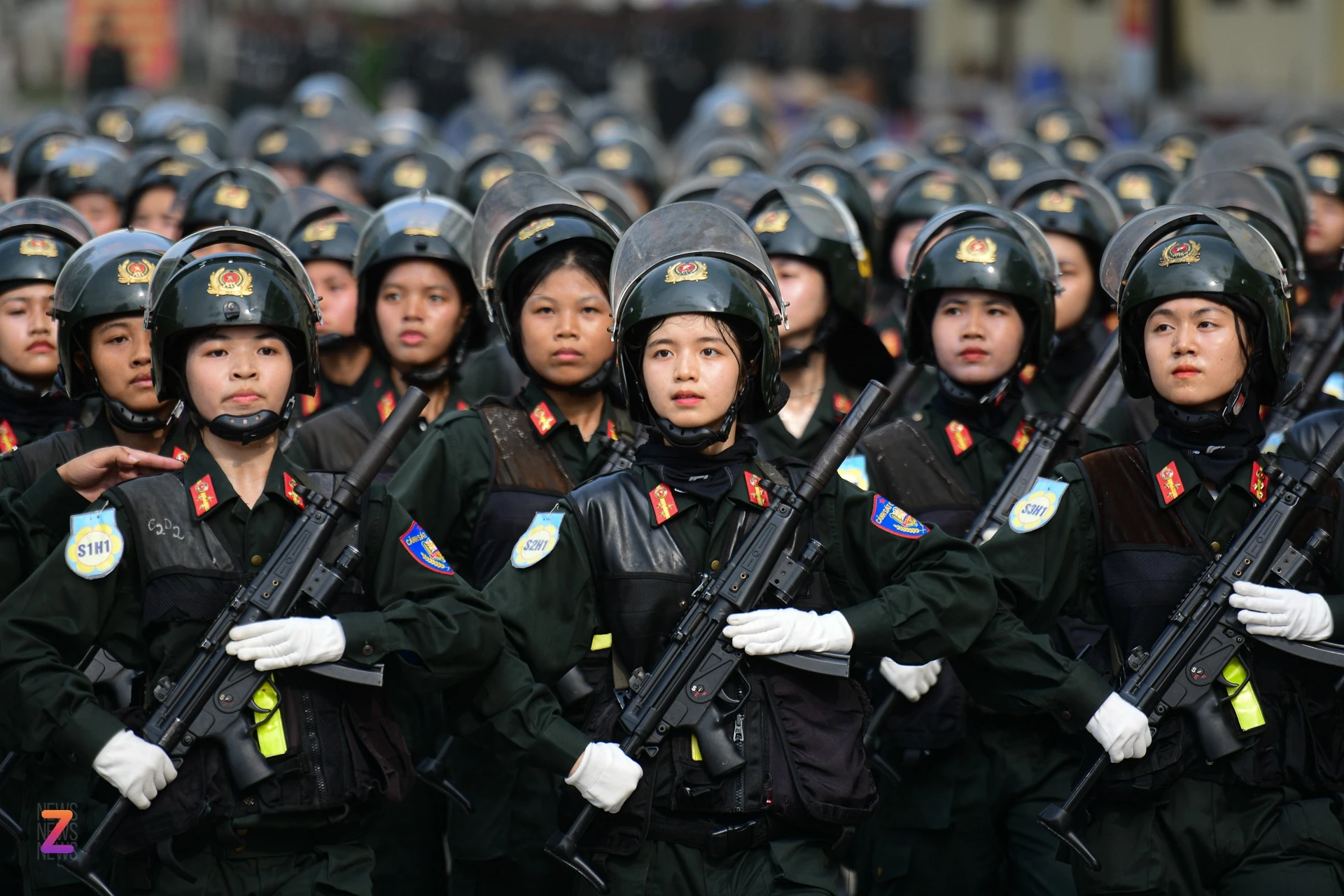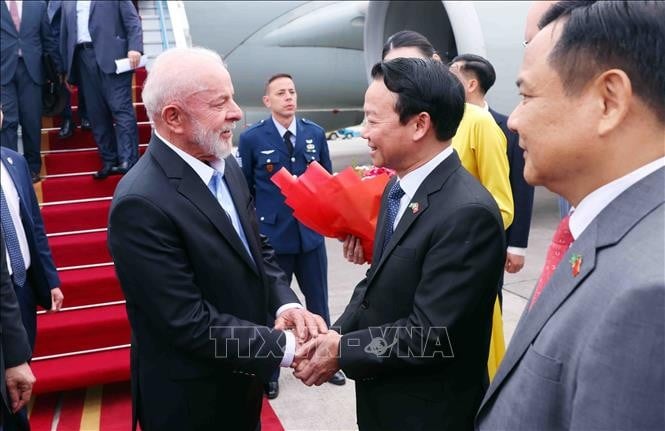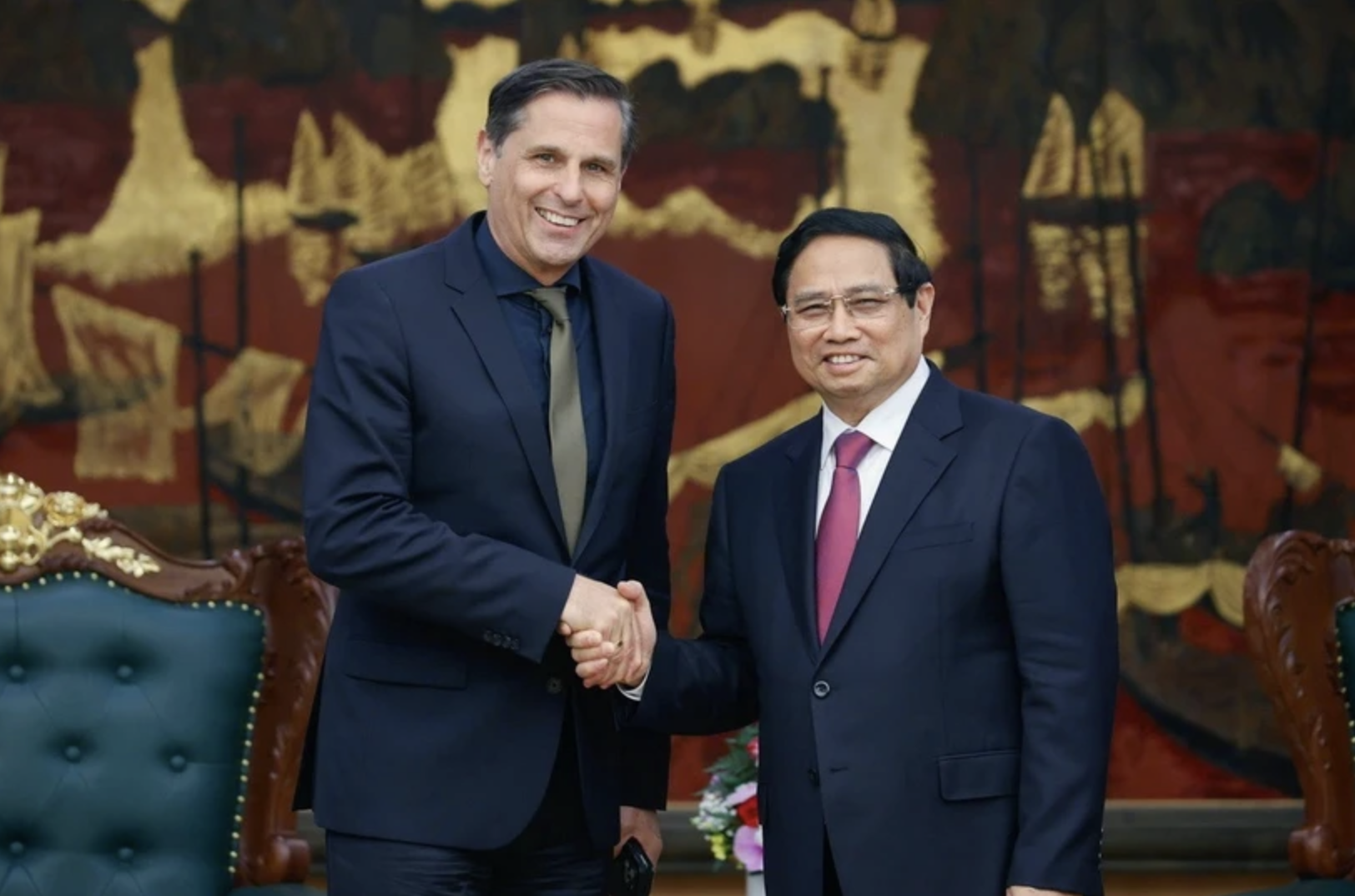As the Trump administration continues to push for a ceasefire in Ukraine, Europe is focusing on its own military might for the first time in decades.
Germany stands out most, with its military (the Bundeswehr) having endured years of underinvestment. That is now changing. Future Chancellor Friedrich Merz has decided that it is time for Germany to ramp up its defense spending to levels not seen since the Cold War.
The country has just amended its constitutional debt ceiling rules, unlocking billions of euros to supplement its budget. If Germany spends 3.5% of its GDP on the military over the next 10 years, the figure could reach 600 billion euros.

German soldiers in Afghanistan in front of a Dingo infantry fighting vehicle. Photo: CC/Wiki
At a secret location in central Germany, the German military recently conducted exercises with five NATO allies, simulating an attack by a foreign enemy on a member of the bloc. Here, German Brigadier General Ralf Hammerstein emphasized that Germany must be a reliable partner in Europe and ready to take on a larger role in the region.
The Russia-Ukraine conflict that began in 2022 has shaken Europe, ending the long period of detente that had existed since the Cold War. Outgoing Chancellor Olaf Scholz has set up a 100 billion euro fund to upgrade the Bundeswehr, but slow implementation and internal conflicts have cost him his leadership.
Mr Merz has now pledged to accelerate the process, warning that Germany has been lulled into a “security illusion” for decades and needs a radical overhaul of its defence policy. German military spending peaked at 4.9% of GDP in 1963 but fell sharply to 1.1% in 2005. It will not reach the NATO standard of 2% until 2024.
Despite the huge investment pledge, the report by the Bundeswehr’s commissioner for the armed forces, Eva Högl, points to serious problems: the Bundeswehr is failing to meet recruitment targets, the fighting force is aging, and barracks and infrastructure are deteriorating. The report highlights the need for €67 billion to improve military infrastructure, and also shows that the German army is “aging”, with the average age rising from 32.4 in 2019 to 34 today.
Brigadier General Hammerstein believes that money is not the main issue, but rather quality. He believes that Germany has a solid foundation, with a highly motivated force, and now needs to be reinforced.
Meanwhile, national sentiment is also shifting. A March poll by ARD found that 66% of Germans support increased military spending, while 59% agree that Germany should increase its debt to invest in defense and infrastructure.
Ngoc Anh (according to ARD, DW, CNN)
Source: https://www.congluan.vn/duc-dang-giai-ngan-hang-ty-usd-de-tang-cuong-suc-manh-quan-su-post339792.html




![[Photo] Admiring orange cotton flowers on the first "Vietnam heritage tree" in Quang Binh](https://vstatic.vietnam.vn/vietnam/resource/IMAGE/2025/3/28/7476a484f3394c328be4ac8f9c86278f)

![[Photo] Prime Minister Pham Minh Chinh receives Chairman of Skoda Auto Group](https://vstatic.vietnam.vn/vietnam/resource/IMAGE/2025/3/27/298bbec539e346d99329a8c63edd31e5)



















































































Comment (0)